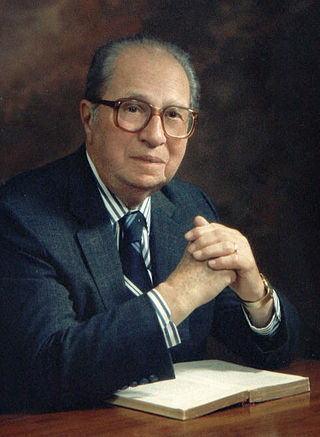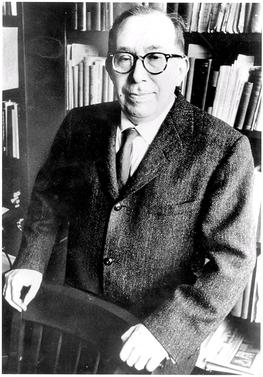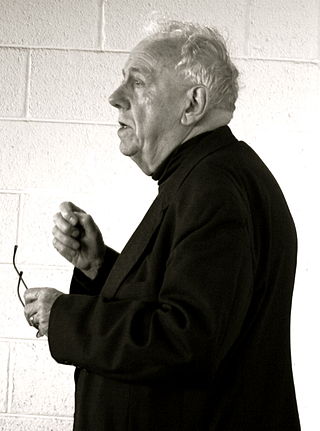Related Research Articles

Aristotle was an Ancient Greek philosopher and polymath. His writings cover a broad range of subjects spanning the natural sciences, philosophy, linguistics, economics, politics, psychology and the arts. As the founder of the Peripatetic school of philosophy in the Lyceum in Athens, he began the wider Aristotelian tradition that followed, which set the groundwork for the development of modern science.

Mortimer Jerome Adler was an American philosopher, educator, encyclopedist, and popular author. As a philosopher he worked within the Aristotelian and Thomistic traditions. He taught at Columbia University and the University of Chicago, served as chairman of the Encyclopædia Britannica board of editors, and founded the Institute for Philosophical Research.
Natural law is a system of law based on a close observation of human nature, and based on values intrinsic to human nature that can be deduced and applied independently of positive law. According to the theory of law called jusnaturalism, all people have inherent rights, conferred not by act of legislation but by "God, nature, or reason." Natural law theory can also refer to "theories of ethics, theories of politics, theories of civil law, and theories of religious morality."

Leo Strauss was a German-American scholar of political philosophy who specialized in classical political philosophy. Born in Germany to Jewish parents, Strauss later emigrated from Germany to the United States. He spent much of his career as a professor of political science at the University of Chicago, where he taught several generations of students and published fifteen books.

Virtue ethics is an approach that treats virtue and character as the primary subjects of ethics, in contrast to other ethical systems that put consequences of voluntary acts, principles or rules of conduct, or obedience to divine authority in the primary role.

Aristotelianism is a philosophical tradition inspired by the work of Aristotle, usually characterized by deductive logic and an analytic inductive method in the study of natural philosophy and metaphysics. It covers the treatment of the social sciences under a system of natural law. It answers why-questions by a scheme of four causes, including purpose or teleology, and emphasizes virtue ethics. Aristotle and his school wrote tractates on physics, biology, metaphysics, logic, ethics, aesthetics, poetry, theatre, music, rhetoric, psychology, linguistics, economics, politics, and government. Any school of thought that takes one of Aristotle's distinctive positions as its starting point can be considered "Aristotelian" in the widest sense. This means that different Aristotelian theories may not have much in common as far as their actual content is concerned besides their shared reference to Aristotle.

Franco Petri Burgersdijk or Franciscus Burgersdicius was a Dutch logician.

The Nicomachean Ethics is Aristotle's best-known work on ethics: the science of the good for human life, that which is the goal or end at which all our actions aim. It consists of ten sections, referred to as books or scrolls, and is closely related to Aristotle's Eudemian Ethics. The work is essential in explaining Aristotelian ethics.

Alasdair Chalmers MacIntyre is a Scottish-American philosopher who has contributed to moral and political philosophy as well as history of philosophy and theology. MacIntyre's After Virtue (1981) is one of the most important works of Anglophone moral and political philosophy in the 20th century. He is senior research fellow at the Centre for Contemporary Aristotelian Studies in Ethics and Politics (CASEP) at London Metropolitan University, Emeritus Professor of Philosophy at the University of Notre Dame, and permanent senior distinguished research fellow at the Notre Dame Center for Ethics and Culture. During his lengthy academic career, he also taught at Brandeis University, Duke University, Vanderbilt University, and Boston University.

The designation "Renaissance philosophy" is used by historians of philosophy to refer to the thought of the period running in Europe roughly between 1400 and 1600. It therefore overlaps both with late medieval philosophy, which in the fourteenth and fifteenth centuries was influenced by notable figures such as Albert the Great, Thomas Aquinas, William of Ockham, and Marsilius of Padua, and early modern philosophy, which conventionally starts with René Descartes and his publication of the Discourse on Method in 1637.
Phronesis is a type of wisdom or intelligence relevant to practical action. It implies both good judgment and excellence of character and habits, and was a common topic of discussion in ancient Greek philosophy. Classical works about this topic are still influential today. In Aristotelian ethics, the concept was distinguished from other words for wisdom and intellectual virtues—such as episteme and sophia—because of its practical character. The traditional Latin translation is prudentia, which is the source of the English word "prudence". Among other proposals, Thomas McEvilley has proposed that the best translation is "mindfulness".
Harry Victor Jaffa was an American political philosopher, historian, columnist, and professor. He was a professor emeritus at Claremont McKenna College, Claremont Graduate University, and was a distinguished fellow of the Claremont Institute. Robert P. Kraynak says his "life work was to develop an American application of Leo Strauss's revival of natural-right philosophy against the relativism and nihilism of our times".
Classical republicanism, also known as civic republicanism or civic humanism, is a form of republicanism developed in the Renaissance inspired by the governmental forms and writings of classical antiquity, especially such classical writers as Aristotle, Polybius, and Cicero. Classical republicanism is built around concepts such as liberty as non-domination, self-government, rule of law, property-based personality, anti-corruption, abolition of monarchy, civics, civil society, common good, civic virtue, popular sovereignty, patriotism and mixed government.
The Commonwealth men, Commonwealth's men, or Commonwealth Party were highly outspoken British Protestant religious, political, and economic reformers during the early 18th century. They were active in the movement called the Country Party. They promoted republicanism and had a great influence on Republicanism in the United States, but little impact in Britain.

Thomas Lee Pangle, is an American political scientist. He holds the Joe R. Long Chair in Democratic Studies in the Department of Government and is Co-Director of the Thomas Jefferson Center for Core Texts and Ideas at the University of Texas at Austin. He has also taught at the University of Toronto and Yale University. He was a student of Leo Strauss.
Aristotle first used the term ethics to name a field of study developed by his predecessors Socrates and Plato which is devoted to the attempt to provide a rational response to the question of how humans should best live. Aristotle regarded ethics and politics as two related but separate fields of study, since ethics examines the good of the individual, while politics examines the good of the City-State, which he considered to be the best type of community.
Jonathan Lear is an American philosopher and psychoanalyst. He is the John U. Nef Distinguished Service Professor in the Committee on Social Thought and served as the Roman Family Director of the Neubauer Collegium for Culture and Society at the University of Chicago from 2014 to 2022.
The following outline is provided as an overview of and topical guide to ethics.
The philosophy of happiness is the philosophical concern with the existence, nature, and attainment of happiness. Some philosophers believe happiness can be understood as the moral goal of life or as an aspect of chance; indeed, in most European languages the term happiness is synonymous with luck. Thus, philosophers usually explicate on happiness as either a state of mind, or a life that goes well for the person leading it. Given the pragmatic concern for the attainment of happiness, research in psychology has guided many modern day philosophers in developing their theories.

Moral intellectualism or ethical intellectualism is a view in meta-ethics according to which genuine moral knowledge must take the form of arriving at discursive moral judgements about what one should do. One way of understanding this is that doing what is right is a reflection of what any being knows is right. However, it can also be interpreted as the understanding that a rationally consistent worldview and theoretical way of life, as exemplified by Socrates, is superior to the life devoted to a moral life.
References
- ↑ Lear, Gabriel Richardson (12 October 2003). ""Aristotle and the Philosophy of Friendship" reviewed by Gabriel Richardson Lear". Ndpr.nd.edu. Retrieved 25 October 2014.
- ↑ "American Freedom Alliance". Americanfreedomalliance.org. Retrieved 25 October 2014.
- ↑ "A review of The Political Philosophy of Benjamin Franklin by Lorraine Smith Pangle". Claremont.org. Retrieved 25 October 2014.
- ↑ Lerner, Ralph (November 1994). "Review:The Learning of Liberty: The Educational Ideas of the American Founders". American Journal of Education. 103 (1): 110–114. doi:10.1086/444092. JSTOR 1085502.
- ↑ "Ross M. Lence Master Teacher Residency: 2009 Events". Uh.edu. 17 October 2013. Retrieved 25 October 2014.